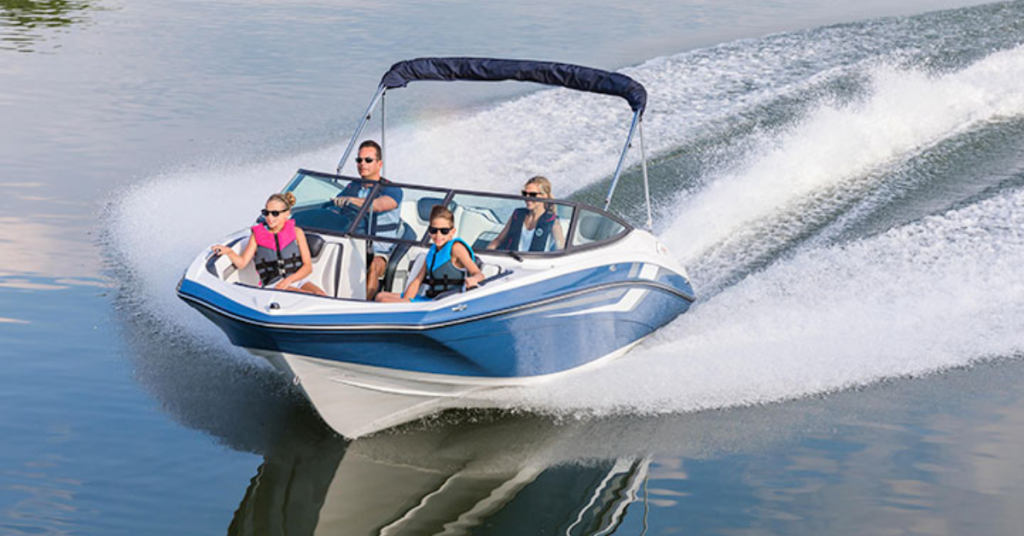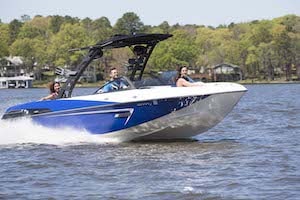
If you are planning on purchasing a powerboat or a sailboat in the coming months, there’s a good chance that you are looking into boat insurance as well. If this is the case, you likely have some questions about boat insurance companies and whether you need additional coverage. Well, you came to the right place! In this article, you will find answers the top 9 most frequently asked questions about boat insurance.
Do I Need Boat Insurance?
Legally, only two states require some type of boat insurance coverage (and for one of these states, only boats with engines that produce more than 50 horsepower). There are additional insurance requirements in some states for boaters that meet specific criteria; ensure that you verify boat insurance requirements with your individual state marine board or other governing body.
It is more commonplace that your bank or marina will place insurance requirements on your boat. If you have a boat loan that uses the boat as collateral, then the bank will almost certainly require boat insurance coverage. According to the Global Marine Insurance Agency, some lenders may even “force place” a marine insurance policy onto your boat if proof of insurance is not furnished. Many marinas will also require that you maintain current boat insurance in order to keep the boat at their facility.
Past any binding contracts or legislation, your tolerance for risk may be the determining factor in whether you decide to insure your boat. As with any potentially hazardous activity, having an insurance policy can help offset the risks associated with operating a boat on the water. Typically, boats are a serious investment and can be a significant cost in the event of an unexpected repair or accident. Ensure that you are educated and aware of the risks at play before deciding either way.
What states require boat insurance?
As of right now, only two states have boat insurance laws—Arkansas and Utah. In Arkansas, all motorboats powered by engines of more than 50 horsepower, and all PWC, must be covered by a liability insurance policy. The policy must provide at least $50,000 of liability coverage, and it is illegal to operate the PWC without the required insurance.
In Utah, all motorboats and PWC are required to carry owner’s or operator’s liability insurance when operated on Utah waters. Motorboats equipped with engines less than 50 horsepower and airboats are exempt. It is illegal to operate a PWC on Utah waters without the required insurance.
Utah’s boat insurance policy requires the following minimum coverage limits per occurrence:
- $25,000 for bodily injury per person.
- $50,000 for total bodily injury if multiple people are hurt in the accident.
- $15,000 for property damage.
There are some instances of states requiring insurance for boats used in some state parks or kept in some state-operated marinas—check with your state marine board or alternative governing agency to see if you are impacted.
What kind of boat insurance do I need?
Like many other insurance policies, boat insurance can typically be separated into a few types: liability, uninsured motorist, and collision/comprehensive coverages.

Liability insurance is the minimum standard required by most states, banks, and marinas. The boat insurance professionals at trustedchoice.com recommend buying at least $1,000,000 in liability insurance. The recommended amount of liability coverage can be even higher if you have a fast, powerful boat that is both riskier and can cause more damage.
With uninsured/underinsured motorist coverage, the standard minimum is $10,000. Ensure that you take into account any potential injuries and damages you may need to cover if you or one of your passengers is injured or your vessel is badly damaged.
The last type of boat insurance we will cover is collision coverage and comprehensive coverage. These types of coverages should be based specifically on the value of your boat. Check with your lender (if you lease or finance your boat) or your marina (if you rent a boat slip) to see if there are insurance policies in place.
How much boat insurance do I need?
Beyond any state legislation or binding agreements with your lender or marina, the answer to this question may come down to your individual tolerance for risk. As discussed in earlier questions, some states do have minimum requirements for liability insurance coverage. Check with your state government to see whether you are required to meet a coverage threshold. The amount of boat insurance you may need depends on a number of factors, including the boat’s value, motor size, and age. Like other vehicles, high-performance boats will likely command a higher level of coverage to compensate for the amount of damage they are able to inflict.
What does boat insurance cover?
Common boat insurance coverages include:
- Property damage liability—Property damage liability insurance covers the cost of damages to someone else’s property after an accident you cause. In most cases, your property damage will pay out when you are at fault for an accident that causes damage to someone else’s boat or PWC.
- Collision damage—When your boat or PWC is damaged in an accident, collision insurance is an optional coverage that pays the cost of repairing or replacing it, minus the amount of your deductible.
- Bodily injury liability—Bodily injury liability coverage is the part of your insurance policy that pays for the costs associated with injuries to other people involved, if you are found legally responsible for a boating accident.
- Hull coverage—Hull insurance covers any physical damages that occur to your boat and generally includes trailers, equipment, motors, and accessories. Typical claims include fire and windstorm damage.
- Fuel spill liability—A separate policy that separates out fuel spill liability and provides coverage for any fines that may occur from an accident involving a fuel spill.
What is the best type of boat insurance?

The best type of boat insurance is insurance coverage that adequately meets your legal and contractual obligations and allows you to feel comfortable about your exposure to risk. Because each individual situation is different, it is important that you determine what coverage factors matter most to you and your family.
Is boat insurance expensive?
As is the case with almost anything you purchase, the more research and price comparison you do—the higher likelihood that you will find the boat insurance quote that is right for you. Here are some tips to ensure that you are getting your money’s worth and keeping your costs down:
- Only buy what you need: There are lots of options out there for marine insurance and many of these policies are custom-written. Ensure that you know what you need so you can avoid paying for features that you don’t require.
- Agreed value vs. Cash value: In an agreed value policy, you are paid a pre-determined value for the vessel in the event of a total covered loss. With agreed value, the insured and insurer agree on the value of the boat upfront. Most agents would recommend this option for a new or late-model boat. As the boat continues to age, look to potentially switch to a cash value option to save on premiums.
- Take a boater safety course: Almost all insurers offer a discount for boaters that have recently completed an approved boater safety course. Take an in-person class or get your boat safety certification online. Check with your insurance agent to see if a discount is offered for your specific policy.
- Spend on safety gear: Insurance companies may cut you an additional discount for having extra safety features onboard your vessel. Check with your insurance agent to see if you qualify for any additional savings.
How much does boat insurance cost?
According to trustedchoice.com, the cost of boat insurance generally ranges from $300 to $500 per year, on average. Depending on the type of boat and your personal profile, your insurance costs may be significantly higher. “The type of boat, its length, and the expected use of the boat will largely dictate your boat insurance rates. Whether you have a speed boat, a small fishing boat, or a yacht will make a big difference in what you pay.” Another insurance comparison resource tells us that a good approximation for your annual premiums is 1.5% the current market value of your boat.
To read the full article, click here.